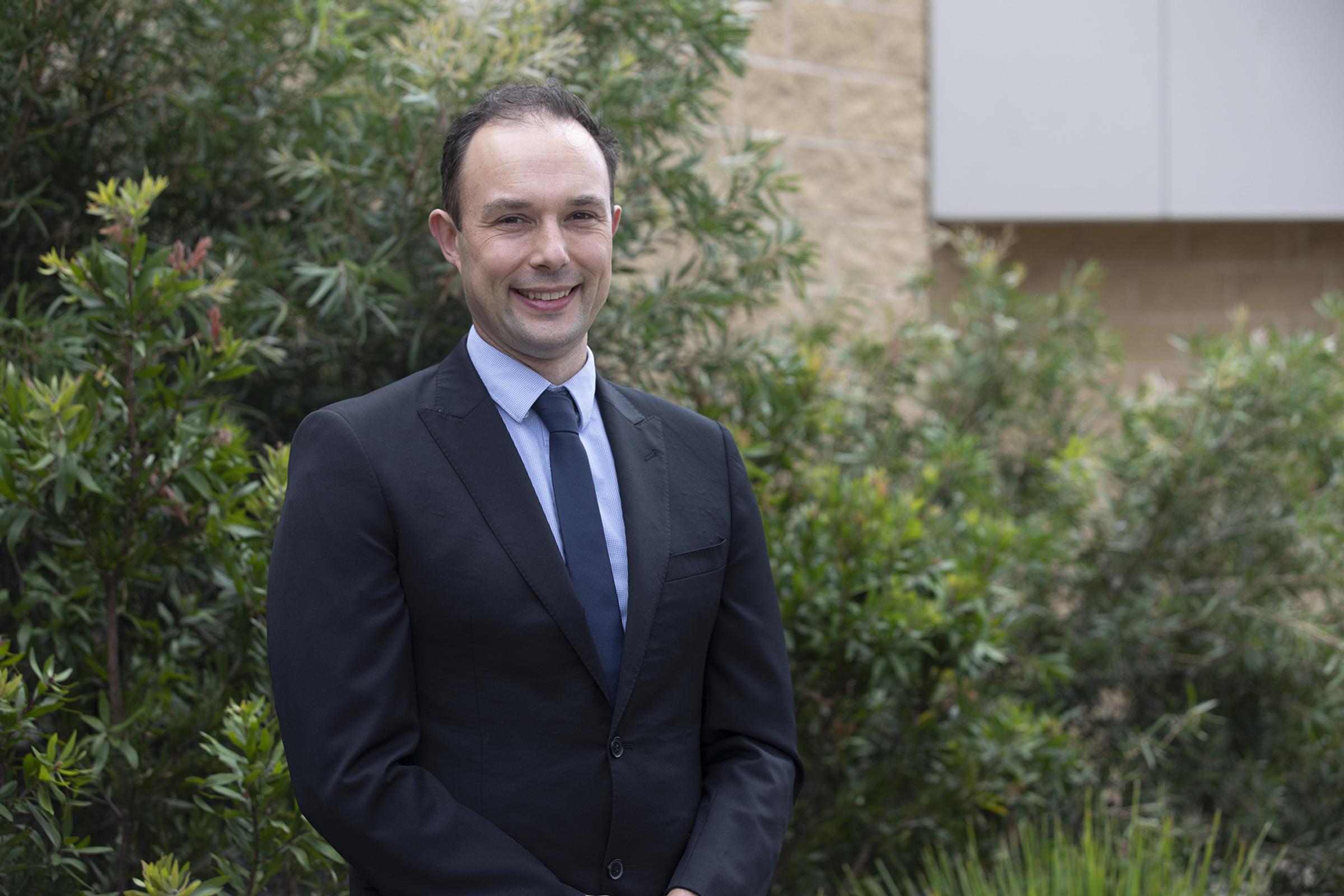Principal's Report

School Review: Update for Our Community
As we progress through our school review, we’re pleased to share some key reflections and highlights with our community. This important process has involved a thorough and collaborative evaluation of our school’s performance and direction. Over the past weeks, the review panel has conducted many classroom observations across a wide range of year levels and subjects. These visits have provided a valuable window into our day-to-day teaching and learning practices and have highlighted the professionalism and dedication of our staff.
In addition to classroom visits, the review has included focus groups with students, staff, and parents/carers. These conversations have provided rich insights into the experiences, strengths, and aspirations of our community. There is a strong sense of pride and cohesion, with students, staff and families articulating a shared commitment to improvement. Our work in Learning and Wellbeing as measured by the Department has been rated as High, and we have seen strong performance in areas such as VCE achievement, NAPLAN growth, and student attendance. Our Attitudes to School Survey (AtoSS) outcomes also compare positively to similar schools, reinforcing that our students feel supported, connected, and safe.
A key theme emerging from the review is the collective understanding of our key improvement strategies. Across the college, there is clear alignment—everyone is speaking the same language and pulling in the same direction. The dedication and focus of our leaders, teachers, and education support staff is evident, and the panel has recognised outstanding practices in both instructional and wellbeing domains. Our students’ behaviour and attitude to school life was noted, in particular their respect and good manners. Well done to all members of our community for valuing these and reinforcing these qualities.
Looking ahead, the final review day will take place on the 19th June, during which the strategic direction for the next phase of our school’s improvement journey will be determined. We are confident that the findings of this review will guide us in building on our strengths and continuing to provide a safe, inclusive, and aspirational learning environment where every student can thrive. We thank all members of our community who have contributed to the review so far and look forward to sharing the outcomes in due course.
Assessment and Reporting: A focus on learning growth and the removal of letter grades
The focus on documenting student’s learning growth over letter grades this semester has progressed positively and we appreciate the patience of the community as we continue to navigate the best ways to keep students motivated and focused, and our parents informed. Thank you to those that offered feedback on our current reporting practices, it’s very helpful and valued. I thought I would take this opportunity to explain more about how we are reporting student growth and what the performance indicators mean in your child’s classes, as we move closer to the mid-year mark.
For the Victorian Curriculum, students are working towards their year level to demonstrate expected year levels. So, by the end of year 7, a year 7 student who is demonstrating expected skills and knowledge will receive a 7. At the mid-year point, a year 7 student who is demonstrating expected levels will receive a 6.5. See the table below:
Year 7 – 10 Victorian Curriculum Levels – Mid Year
Year Level | Well Below Level | Below Level | At Level | Above Level | Well Above Level |
7 | 5.0 and below | 5.5-6.0 | 6.5 | 7.0-7.5 | 8.00+ |
8 | 6.0 and below | 6.5-7.0 | 7.5 | 8.0-8.5 | 9.00+ |
9 | 7.0 and below | 7.5-8.0 | 8.5 | 9.0-9.5 | 10.00+ |
10 | 8.0 and below | 8.5-9.0 | 9.5 | 10.0-10.5 | 11.00+ |
To understand more about how students are reported on, please visit Victorian Curriculum 2.0.
For students in VCE, they receive a performance indicator expressed through ranges to indicate their performance in SACs and key tasks. It is important to understand that our traditional thinking around a SAC score is misleading and ultimately ignored by VCAA as they determine a student’s final score in a subject. What VCAA want to know is the rank of each student in a subject area as they apply their own statistical moderation processes.
Our numerical scores are not determiners of student performance in VCE, only their rank order is. You can read more about that here.
Therefore, what our teachers do, following advice from VCAA and our VCE examiners, is provide students with range indicators:
Very High
High
Medium-High
Medium-Low
Low
Very Low
This practice has been used by our Englishes and History classes for many years, but now all faculties are using it for consistency, to support the focus on growth and to better align with VCAA’s advice. It is worth noting that our English team received a 34 median last year, two points above the school’s median of 32, indicating this reporting practice is sound.
Determining which range students fall into is determined by the graded assessment distributions that VCAA share. These inform teachers what the exam score translates to for a student. For example, in 2023 on the VCE English examination, scores between 41-60 out of 60 marks, resulted in an A or A+. Therefore, when English teachers read student work and mark it against a rubric, students who are scoring similar results will receive a Very High. See an example of a VCAA grade distribution table below.
The reason the specific score is not revealed to students, is that it is subject to change due to VCAA’s statistical moderation system, so reporting the student’s range and encouraging the student to focus on the written feedback and conferencing with the teacher for specific improvement feedback, is far more accurate and useful.
Quantitative results are shared with students as well, when appropriate, so that they still understand where marks have been lost in short answer questions. For example, students will be told if they received 3 out of 4 marks for question two on their Legal Studies SAC. They may be told they received 67 out of 70 possible marks on their entire Legal Studies SAC. But what will be reported on their Semester Report and the Learning Task, might be ‘Very High’.
We will continue to work with students and teachers in understanding our grading system, but please be reassured that the only thing that has changed in VCE this year, to last year, is how the student’s achievement is reported. They are completing the same tasks and are being told how they are performing specifically, not vaguely, with the focus on individual improvement to maximise performance.
Please note that on Friday June 6th we have a Curriculum Day, and no student will be onsite. The focus of this day for staff is Assessment and Reporting. Please note that on Monday 9th June, it is the King's Birthday public holiday.
Our Thriving Co-Curricular Program at DSC
This term, our co-curricular program at Doncaster Secondary College is thriving more than ever, with an incredible range of opportunities for students to explore their interests, connect with others, and have fun beyond the classroom. From creative clubs like Art, Craft and Crochet, and Lego, to interest-based groups like Aviation, K-Pop, and Chess, there's something for everyone. Our wellbeing and chill-out spaces offer students a chance to relax and recharge, while leadership groups like the Student Wellbeing Committee and Student Parliament are empowering students to shape their school experience. A highlight of the term has been the energy and enthusiasm across all year levels. Clubs are buzzing with participation, new friendships are forming, and student-led initiatives are making a real impact. The recent Music Camp was a standout success, with students showcasing their musical talents in a peer concert and now preparing for our upcoming Winter Concert. Sporting events, like the Year 12 vs Year 11 Lunchtime Soccer Showdown, and fundraising efforts such as the Nepal Free Dress Day and Sausage Sizzle, have added excitement and purpose to the calendar. These rich and diverse experiences reflect the strong sense of community and student engagement that defines our school. We’re proud of our students’ willingness to get involved, try something new, and lead with creativity and confidence. Thank you to all staff who have supported these opportunities for our students to connect across the college and find their interests and strengths.
Glenn Morris
College Principal

